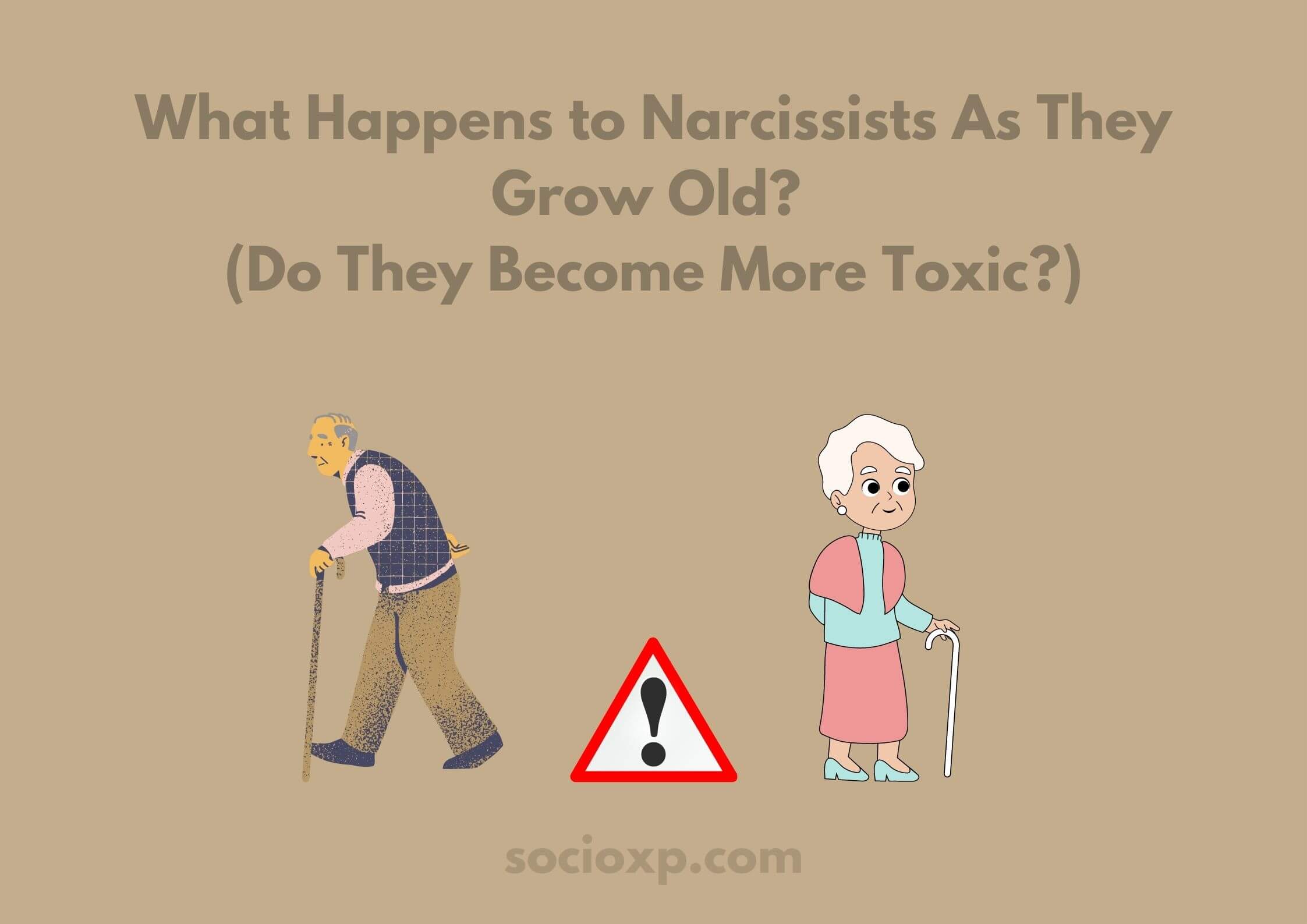Are Narcissists Born or Made? – Solving the Dilemma
“Are Narcissists born or made?”, this question would primarily arise for many people as to how is narcissism acquired? Is it in childhood, or are they born with it, or due to some traumatic incident, or did they acquire it in the later stages of life?
This dilemma lingers around for many people as they come across increasingly more narcissists in their lifetime. Narcissism can affect differently to different people as it affects on a spectrum.
As Narcissism exists on a spectrum, it is on a wild spread in modern times. From normal, and healthy, to a little toxic, pathological, and fully blown unhealthy; it exists on a spectrum or a continuum that can only be clinically tested. Thus the possibility of you coming across a narcissist in your lifetime has higher chances.
Though everyone is a little narcissistic, narcissism is hazardous when it starts hindering the daily life of an individual and everyone around them.

Narcissistic personality disorder is a mental health condition that is medically and clinically diagnosable to tag someone as a narcissist. Narcissists have unreasonably higher sense of self so much so that they might not care about anything else but themselves.
But is it a mental health condition that a person is born with, or can it affect a person later in life? Though knowing the cause may not make it less challenging to deal with a narcissist, but it can help you understand that person deeply and also allow you to seek ways to deal with them efficiently.
Narcissistic characteristics may be dormant for some people and become recognizable when the person reaches the golden years or old age. For some people the development of narcissism might come as early as their teens, while for some narcissism may emerge in their later years, even though the traits may be dormant or active, everyone does possess narcissistic traits but those traits might not be vital for all people.
Now let us get back to the question, “Are Narcissists Born or Made?” and solve the dilemma.
Are Narcissists Born or Made? – Solving the Dilemma
Is narcissism inherited or learned? Many of the readers might be curious about this question. Let us get into the details of it.
Is narcissism inherited or learned?
The exact cause of narcissistic personality disorder is yet unknown, but it is believed that various factors do play a crucial role in inclining people towards narcissistic traits. Narcissism is believed to be the result of various factors including genetic factors, environmental factors, heredity, parenting style, and certain brain mutations.
Moreover, it can be concluded that this question has a complex answer. Narcissism is probably inherited too, and it can also be learned thus it is complex to understand the root cause fully.
Like all other mental health issues, narcissism can also be inherited from narcissistic parents and environmental factors can also play a major role in its inheritance and learning. According to experts who have been in the field of psychology also agree that narcissism is influenced by many factors. In fact, it is a combination of various factors for some individuals.

These factors include genetics, social setup, and environment. There is no significant consensus on the debatable question, “Is narcissism inherited or learned?” but based on research and expert opinions, both inheritance and learning play a big role in the development of narcissism.
Various studies have shown that genetic factors contribute largely to the development of NPD. Traits like lack of empathy, heightened sense of self, and grandiose behavior may have a genetic susceptibility to the development of narcissism for an individual.
Traumatic childhood experiences and learned behavioral techniques also play a crucial role in influencing narcissism. As suggested by experts, individuals who have an environment where they lack warmth, emotional disconnect, or ignorance in their upbringing often display traits like entitlement, grandiosity, excessive need for admiration, attention, and validation, and develop shallow relationships. Such individuals are more likely to incline to develop narcissistic traits in their lifetime.
Social factors, cultural influence, and brain mutations also play a role in the development of narcissistic traits for a person.
The effect of narcissism depends upon where it lies on the spectrum, and on which end. If it is on a fully blown side, it is dangerous. It can develop in a teenager due to their traumatic childhood experiences, or narcissistic traits can also be inherited during childbirth, or it can also affect the person in their old age. Thus, there is no specific age and time for its development.
This question is debatable as not all agree upon the development of narcissistic traits due to a balance of genetics and environmental factors. Narcissism is complex and thus more research is needed to draw conclusions regarding its origin how it affects a person and what age.
Thus, root cause analysis suggests that the origin of narcissism is unclear and thus the exact answer to the question, “Are Narcissists Born or Made?” yet remains unclear.
Are Genetics solely responsible for Narcissism?
Genetics do play a role in the development and maturing of narcissistic personality disorder. Though this is one of the factors that influence narcissism, other factors also can play a big role in the development of narcissism.
Having a narcissistic member around increases the risk of developing NPD though. This family member may impact a person in developing NPD, and thus this can contribute in terms of environmental factors(If the family member is a close family member like family) and heredity factors.
To categorize something as being heredity refers to the ability to pass down through generations from parents to their children and so on. Heredity also confines something that is passed down biologically from parent to child through DNA. This includes traits, mannerisms, and traditions.
Children learn from their parents, so parents would only be passing on narcissistic traits to their children as an inherent quality and in heredity knowingly or unknowingly, willingly or unwillingly, by choice or without choice. Unless they are guided toward what is right, instead of toxic behavior, there is no way a child will not learn all those narcissistic traits possessed by their Narcissistic parents.
But there are other factors too that can play a significant role in the development of narcissism. Those factors include,
The Risk Factors for Narcissism
There can be different factors that may contribute to narcissism, and thus narcissism is not just passed down in heredity but other factors too.

Parenting
Parenting style can deeply impact a child’s development. Overprotective parents, Neglecting Parents, Helicopter Parenting, and Snowplow Parenting can leave a child feeling that their parents are either too involved in the child’s life or the child is completely ignored and neglected by the parents. These feelings can develop into narcissistic personality disorder.
A child’s personality as an adult depends a lot on how they have been raised and the treatment of their parents. If parents miss out on the parenting part even for a short time, the child can adopt various things from environment and social cultures. This increases the odds of them adopting negative traits which can later result in the development of personality disorders.
Environmental Factors
Environmental factors include other family members, interactions within the school, and extracurricular activities. Some cultural factors may also contribute to the development of narcissistic personality disorder, like a surge in social media usage, the depiction of narcissistic behavior in fiction and films, or the narcissistic traits portrayed by celebrities.
Gene Mutations
Brain composition plays a vital role in Narcissistic Personality Disorder, as Brain chemistry and brain mutations can be deeply affected. This even affects the structural development of the brain. The cerebral cortex is responsible for translating sensory data into pleasant and unpleasant emotional responses.
The brains of people with NPD when specifically studied, suggested that such people have lower levels of grey matter, in the insular cortex a part of the cerebral cortex that is responsible for efficient and effective functioning of the brain activities.
Childhood trauma
The correlation between developing narcissism and experiencing childhood trauma is higher. Narcissism often develops as a form of coping mechanism against physical, mental, or emotional abuse, loss of a loved one, violence, witnessing separation and constant fights, or experiencing anything that can leave a person feeling wretched.

Inherited characteristics
Often it is observed by mental health experts, that the children raised by narcissists have childhood trauma, which affects their upbringing and also makes them the same or even more narcissistic than their parents. Children learn from their parents, so parents would only be passing on narcissistic traits to their children as an inherent quality knowingly or unknowingly, willingly or unwillingly, by choice or without choice.
What kind of upbringing creates a narcissist?
There are a few parenting glitches that may instill narcissistic characteristics in kids,
Neglect or being ignored
If a child and their needs are constantly neglected and does not get enough care when they are young, they may try their best to seek attention. This incident can affect them mentally and emotionally. So, when they seek attention and are rewarded, this situation may create a loop where the child constantly acts out of their way to seek more attention.
Thus, the child can develop a constant need to seek attention from others. Thus, this can lead to narcissism in the later stages of life.
When you grow up with overvaluing parents
If a child is constantly appreciated even when they do something wrong but are victorious using negative ways, then this is a form of negative parenting.
Toxic parents always teach their kids to do no wrong, never apologize, feel entitled and deserve the best, and seek attention from others, then these traits can lead to the development of narcissistic traits in the later stages of life for your child.
When selfishness is rewarded
When a child is being rewarded for negative things like creating chaos, thinking of themselves first and ignoring other people’s needs, winning by cheating, being appreciated for lying, taking things for granted, and devaluing others then such traits can internalize narcissistic traits when they get older.

Signs you may be in a relationship with a Narcissist
- They would be sensitive to criticism.
- They would have the urge to win every argument and would do anything in their power to gain the upper hand in the situation.
- They would present you as a trophy wife or a trophy husband during social gatherings.
- They would exhibit excessive rage and anger issues.
- They would never help you out to manage the household or even would deny taking care of your children.
- They would neglect your sexual needs, but you always have to fulfill theirs.
- They would often go out without informing or providing any information and when you question them, they would get angry.
- All conversations that you have always circle back to them.
Conclusion
Narcissistic Personality Disorder is difficult to diagnose. This disorder comes with varied contributing factors. Narcissism cannot be cured, but the degree of narcissism can be hauled down by seeking therapies and getting healed emotionally and psychologically.
The exact cause of narcissistic personality disorder is yet unknown, but it is believed that various factors do play a crucial role in inclining people towards narcissistic traits. Narcissism is believed to be the result of various factors including genetic factors, environmental factors, heredity, parenting style, and certain brain mutations.
Narcissism is complex and thus more research is needed to draw conclusions regarding its origin and how it affects a person and what age.
- What Happens When A Narcissist Loses In Court? - November 8, 2025
- Narcissistic Triangulation in Friendships – How to Respond? - November 7, 2025
- How Long Can A Narcissist Fake It? - November 7, 2025


